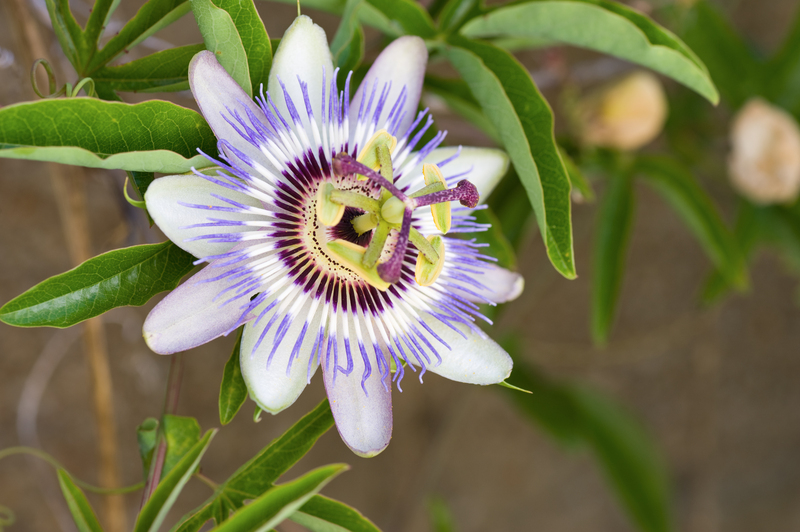Conquering Herb Gardening: A Complete Guide
Posted on 24/09/2025
Conquering Herb Gardening: A Complete Guide
Are you ready to embark on the rewarding journey of herb gardening? Whether you're a seasoned green thumb or just starting out, creating your own herb garden offers a blend of beauty, fragrance, flavor, and practicality. In this comprehensive guide, we will walk you through every aspect of herb garden mastery--from choosing the right herbs to harvesting and preserving your delicious bounty.
Why Grow Your Own Herbs?
Herb gardening is one of the most accessible and fulfilling forms of gardening. Fresh herbs elevate the flavor of your dishes, improve your well-being, and even attract pollinators to your yard. Here are some compelling reasons to start your own herb garden:
- Easy to grow: Most herbs are resilient and require minimal care.
- Space-saving: Herbs thrive in gardens, containers, and even windowsills.
- Cost-effective: Growing your own herbs saves money compared to buying at the store.
- Freshness: Nothing beats the flavor and aroma of just-picked herbs!
- Multipurpose: Many herbs have medicinal, culinary, and decorative uses.

Choosing the Right Location for Herb Gardening
Selecting the proper site is fundamental for herb garden success. Most popular herbs thrive in sunny spots with well-drained soil. Here's what you need to consider:
Sunlight Requirements
Most culinary herbs, such as basil, rosemary, thyme, parsley, and oregano, require at least 6 hours of direct sunlight daily. Partial shade is adequate for herbs like mint, chives, and cilantro. Assess your space and observe sunlight patterns before planting.
Soil Conditions
- Herbs prefer well-drained soil with a pH between 6.0 and 7.0.
- Add compost or well-rotted manure to enrich your soil.
- If drainage is a problem, consider raised beds or containers for your herb plants.
Indoor Herb Gardening
Don't have garden space? Conquering herb gardening indoors is entirely possible. Use containers near south-facing windows or under grow lights to provide ample light for your herbs.
Essential Tools for Herb Gardeners
You don't need fancy equipment to start herb cultivation, but a few basic tools will make the process smoother:
- Hand trowel for digging and transplanting
- Pruning shears for harvesting and shaping herbs
- Watering can with a fine rose or a spray bottle
- Gloves to protect your hands from thorns and irritants
- Plant label sticks or markers for easy identification
Selecting Herbs for Your Garden
The variety of herbs available can be overwhelming. Here's a curated list of easy-to-grow and versatile herbs for beginners and enthusiasts alike:
- Basil: Perfect for Italian dishes, salads, and pestos.
- Parsley: Adds freshness to soups, stews, and garnishes.
- Mint: Excellent for teas, desserts, and cocktails--but grows vigorously.
- Rosemary: Woody, fragrant herb for meat dishes and bread.
- Thyme: Compact herb great for meats, vegetables, and marinades.
- Oregano: Essential in Mediterranean cuisine.
- Chives: Mild onion flavor for eggs, salads, and dips.
- Cilantro: A must-have for Mexican and Asian dishes.
You can also choose between annual herbs (e.g., basil, cilantro) and perennial herbs (e.g., rosemary, thyme, oregano). Perennial herbs offer year-after-year harvests and are ideal if you aim for long-term results.
How to Start Your Herb Garden
There are two main methods for starting an herb garden: seeds or seedlings.
Growing Herbs from Seeds
- Start seeds indoors 6-8 weeks before the last frost or sow directly outside once the risk of frost has passed.
- Use quality seed-starting mix and shallow containers with drainage holes.
- Keep the soil lightly moist and provide ample light.
- Transplant seedlings outdoors when they are robust and weather is warm.
Transplanting Herb Seedlings
- Purchase healthy seedlings from a reputable nursery.
- Acclimate seedlings to outdoor conditions over a week (hardening off).
- Plant in the garden or containers at the recommended spacing.
- Water well after planting and mulch lightly to retain moisture.
Container Herb Gardening: Versatility and Convenience
If space is limited, or you want mobility, herbs in pots or planters are the answer. Here's how to set up a thriving container herb garden:
- Use containers with adequate drainage--herbs dislike soggy roots.
- Fill with a high-quality potting mix, not regular garden soil.
- Choose compact or dwarf varieties for small containers.
- Group herbs by water requirements (for instance, rosemary and thyme prefer drier soil than basil or parsley).
- Water thoroughly but let the soil dry slightly between waterings.
- Feed container herbs monthly with a balanced liquid fertilizer.
Remember, container herb cultivation also allows you to rearrange your garden as needed for decor or optimal sunlight exposure.
Companion Planting with Herbs
Herbs not only benefit your kitchen--they can support your entire garden ecosystem. Here are some companion planting tips for maximizing results:
- Basil repels aphids and improves the growth of tomatoes.
- Thyme deters cabbage worms and works well near brassicas.
- Chives protect carrots against root flies.
- Mint deters ants and cabbage moths but is best grown in containers to prevent spreading.
- Dill attracts beneficial insects and supports cucumbers and squash.
Watering and Caring for Herb Plants
Proper care is crucial for robust herb gardens. Herbs are generally low-maintenance, but attention to detail ensures lush, flavorful growth:
Watering
- Most herbs prefer to dry out a bit between watering.
- Water at the soil level, not overhead, to discourage diseases.
- Container herbs may require more frequent watering than in-ground herbs.
- Check soil moisture regularly, especially during hot spells.
Fertilizing
- Herbs are generally light feeders.
- Apply balanced, organic fertilizer once a month during the growing season.
- Over-fertilization can reduce flavor potency.
Pruning and Pinching
- Regular harvesting encourages fresh, bushy growth.
- Pinch back flower buds to prolong the herb's productive period.
- Prune perennial herbs after flowering to maintain shape.
Dealing with Pests and Diseases
While most herbs are naturally resistant to pests, problems sometimes arise. Here's how to keep your herb garden healthy:
- Avoid overcrowding: Ensure proper spacing for air flow.
- Inspect plants regularly for signs of insects or disease.
- Use organic solutions like neem oil or insecticidal soap if necessary.
- Hand-pick pests such as caterpillars or beetles.
- Rotate crops each year to minimize soil-borne diseases.
Harvesting Herbs for Peak Flavor
Proper harvesting allows your herbs to thrive and ensures maximum flavor. Timing is essential:
- Harvest leafy herbs in the morning after dew dries but before the sun is intense.
- Snip stems just above a leaf node to encourage branching.
- Use sharp, clean scissors or shears.
- Don't harvest more than one-third of the plant at a time.
Preserving Your Herb Harvest
Extending your herb garden's bounty is easy with proper preservation methods:
Drying Herbs
- Gather small bundles and hang upside down in a dry, airy space.
- Once dry, crumble leaves and store in airtight containers.
- Great for thyme, rosemary, oregano, and sage.
Freezing Fresh Herbs
- Chop herbs and freeze in ice cube trays with water or olive oil.
- Ideal for basil, parsley, and cilantro.
Making Herb Infusions or Vinegars
- Infuse vinegar or oil with sprigs of fresh herbs for custom flavors.
- Store in sterilized jars and use within a few months.
Troubleshooting Common Herb Gardening Problems
- Yellowing leaves: Too much water or poor drainage. Check soil moisture.
- Leggy growth: Insufficient sunlight; move to a brighter spot.
- Poor flavor: Over-fertilization; reduce feeding frequency.
- Discoloration or spots: Possible fungal disease--improve air flow and remove affected leaves.
Creative Ideas for Using Fresh Herbs
- Add to salads, soups, omelets, and sauces for enhanced flavor.
- Brew fresh herb teas for relaxation and wellness.
- Make homemade herb butters, oils, and pestos.
- Create fragrant wreaths and bouquets.
- DIY natural cleaning solutions using rosemary, mint, or lavender.

Advanced Tips for the Ambitious Herb Gardener
Ready to take your herb gardening skills to the next level? Try these expert strategies:
- Propagate herbs by cuttings--especially rosemary, mint, and basil for unlimited plants.
- Experiment with less-common varieties like lemon balm, tarragon, lovage, or sorrel.
- Interplant herbs with vegetables to boost yields and reduce pests naturally.
- Design a themed herb garden--such as a pizza garden (basil, oregano, garlic chives) or a tea garden (mint, chamomile, lemon verbena).
- Create vertical herb gardens using wall planters or hanging pots for space efficiency.
Conclusion: Your Path to Herb Garden Mastery
Conquering herb gardening is not only achievable--it's a delight for your senses and a gift to your culinary repertoire. By following the practical strategies in this complete guide to herb gardening, you'll enjoy fresh, flavorful herbs nearly year-round. Whether you grow outdoors, on your balcony, or on a sunny windowsill, herb gardening brings nature's bounty to your fingertips.
Stay curious, experiment with new varieties, and share your harvest with friends and family. The journey to herb gardening mastery is filled with discovery--and the flavors you cultivate will make every meal special!
Start your own herb garden today--and savor the rewards of homegrown herbs for years to come. Happy gardening!
Latest Posts
Conquering Herb Gardening: A Complete Guide
Enchanting Gardens: Winter Care Techniques for Plants
A Greener Earth: Waste into Soil Revitalization

